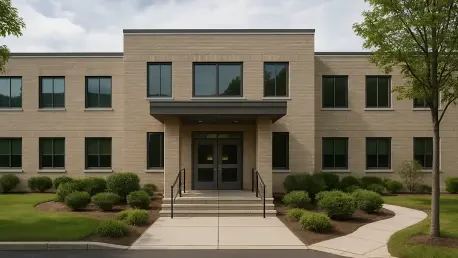In a striking demonstration of Vermont’s resolve to address mental health challenges, Governor Phil Scott recently stood before a gathered crowd in Newport to introduce a groundbreaking initiative aimed at transforming crisis care across the state. This event spotlighted the urgent need for accessible mental health resources, particularly in the aftermath of global health crises and natural disasters that have heightened stress and anxiety among residents. The unveiling of a new urgent care facility in Newport represents more than just a building; it symbolizes a broader commitment to ensuring that no Vermonter faces psychological struggles in isolation. With mental health now recognized as a cornerstone of public well-being, state leaders are pushing forward with innovative strategies to meet the needs of diverse communities. This initiative is a beacon of hope, promising immediate support and long-term solutions for those in crisis, setting a precedent for how rural states can tackle such pressing issues with compassion and efficiency.
Addressing a Growing Need for Mental Health Support
Rising Challenges in Mental Health Care
The urgency of bolstering mental health services in Vermont has never been clearer, as recent years have seen a surge in demand driven by widespread stressors such as pandemics and environmental disasters like flooding. Governor Scott emphasized during his speech that mental health is inseparable from overall public health, a perspective that has gained traction amid growing recognition of its impact on daily life. Statewide initiatives are being rolled out to create a robust safety net, including embedding mental health professionals within state police barracks and enhancing the 988 crisis response line for immediate assistance. These measures aim to reduce the burden on emergency rooms, which are often not equipped to handle psychological crises effectively. By prioritizing accessibility, Vermont is working to ensure that help is available around the clock, addressing the critical gaps that have long hindered timely intervention for those in need across both urban and rural areas of the state.
Innovative Statewide Strategies
Beyond immediate crisis response, Vermont is taking a proactive stance by developing mobile crisis teams that can reach individuals directly in their communities, minimizing the need for hospital visits. These teams have already demonstrated impressive efficiency, responding to hundreds of calls with rapid deployment times that ensure help arrives when it’s most needed. Additionally, the state is exploring a regional expansion of facilities similar to the one in Newport, with ongoing studies to identify the best locations for future centers. This strategic planning reflects a tailored approach, recognizing the unique geographical and emotional needs of Vermont’s population. Commissioner Emily Hawes of the Department of Mental Health highlighted that these efforts are inspired by national models but adapted with a local perspective, ensuring relevance and effectiveness. The goal is clear: to build a network of care that prevents escalation by meeting people where they are, fostering a sense of security and support throughout the state.
Community-Centered Solutions and Impact
A Welcoming Haven for Crisis Support
At the heart of Vermont’s mental health revolution is the new urgent care facility in Newport, described by Kelsey Stavseth, Executive Director of Northeast Kingdom Human Services, as a community-oriented space designed to welcome individuals of all ages. Operating 24 hours a day, this center offers an alternative to traditional emergency departments, focusing on early intervention for a wide range of issues, from anxiety and life changes to substance use challenges and severe emotional distress. The facility emphasizes peer-based support, where individuals with shared experiences provide guidance, creating an environment of understanding and connection. Success stories from the program underscore its impact, with many achieving stability through partnerships that extend beyond immediate care. This model prioritizes inclusivity, encouraging anyone facing difficulties to seek help without fear of judgment, no matter how small or large the concern may seem.
Measuring Success Through Data and Stories
The effectiveness of Vermont’s mental health initiatives is evident in the compelling data shared by state officials, showcasing a system that responds swiftly and resolves crises without unnecessary escalation. Over the past year, the 988 crisis line managed thousands of interactions with an average response time of mere seconds, while mobile crisis teams in the Northeast Kingdom handled nearly a thousand community calls with impressive speed. The Newport facility alone recorded over a thousand visits, with the vast majority of individuals returning to their communities without requiring higher-level care. These figures are complemented by personal accounts of recovery, illustrating how early intervention can transform lives by preventing crises from spiraling out of control. Statewide, the growing network of walk-in programs further supports this mission, offering accessible alternatives that reduce strain on traditional medical systems and ensure help is within reach for all Vermonters.
Building a Future of Compassionate Care
Reflecting on the press conference, it’s evident that Vermont has taken significant steps to reshape mental health care through a blend of policy innovation and community advocacy. The collaborative spirit that fueled the establishment of the Newport facility, backed by state and federal funding, sets a powerful example of what can be achieved when local voices drive change. Leaders like Governor Scott, Commissioner Hawes, and Kelsey Stavseth have demonstrated a unified commitment to destigmatizing mental health challenges, ensuring that support is not just available but also approachable. Looking ahead, the focus must remain on expanding this model regionally, refining response systems, and continuing to integrate peer support into care frameworks. By investing in proactive solutions and maintaining a dialogue with communities, Vermont can further strengthen its network, offering a blueprint for other states to follow in creating a future where mental health care is as fundamental as physical health services.









